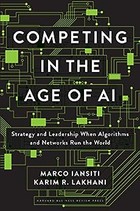The GitHub CEO's recent statement about hiring more software engineers, not fewer, as AI develops has sparked intense debate in the tech community. While many companies are rushing to reduce engineering headcount in favor of AI tools, this contrarian view deserves serious consideration.
The Productivity Paradox
Historically, every tool that has made software development faster has ultimately increased demand for developers. From high-level programming languages to IDEs to cloud platforms, each advancement has expanded what's possible, creating new opportunities and markets.
The same pattern appears to be emerging with AI coding assistants. When developers become more productive through AI tools, they don't become obsolete—they become more valuable. A developer who can accomplish twice as much work becomes twice as attractive to employers.
The Quality Control Challenge
However, increased productivity comes with hidden costs. AI-generated code often appears sophisticated but can be riddled with technical debt. The code compiles and seems to work, but it's frequently:
- Over-engineered and non-performant
- Difficult to read and maintain
- Hard to debug when issues arise
This creates a multiplier effect: one developer using AI carelessly can generate enough problematic code to keep multiple senior engineers busy with cleanup and refactoring.
Economic Forces at Play
The current hiring depression in tech isn't primarily driven by AI replacement fears—it's economics. High interest rates have made companies more conservative with hiring. When rates normalize, we'll likely see the typical pattern: reduced development costs leading to increased demand.
Companies in growth industries are already recognizing this opportunity. They're hiring aggressively now while talent is available, positioning themselves for the inevitable uptick in demand.
Strategic Implications for Companies
Smart Companies Will:
- Invest in senior engineers who can effectively leverage AI tools
- Implement strong code review processes to catch AI-generated technical debt
- Focus on growing markets where increased development capacity translates to competitive advantage
- Train teams on effective AI tool usage rather than replacing them
Companies at Risk:
- Those in consolidating industries focused solely on efficiency gains
- Organizations that reduce engineering headcount without considering code quality
- Businesses that view AI as a simple replacement rather than a productivity multiplier
The Human Element Remains Critical
AI excels at generating code based on patterns, but software engineering involves much more: - Understanding business requirements and translating them into technical solutions - Making architectural decisions that balance current needs with future scalability - Debugging complex systems and reasoning about edge cases - Mentoring junior developers and maintaining code quality standards
These human skills become more valuable, not less, in an AI-augmented development environment.
Looking Forward
The companies that thrive in the AI era won't be those that simply replace engineers with AI tools. They'll be the ones that strategically combine human expertise with AI capabilities to build better software faster.
This means investing in skilled engineers who can work effectively with AI, implementing processes to manage AI-generated code quality, and positioning in markets where increased development velocity creates competitive advantages.
The question isn't whether AI will change software development—it already has. The question is whether your company will use AI to enhance human capabilities or attempt to replace them entirely. The smartest companies are choosing enhancement, and they're hiring accordingly.














